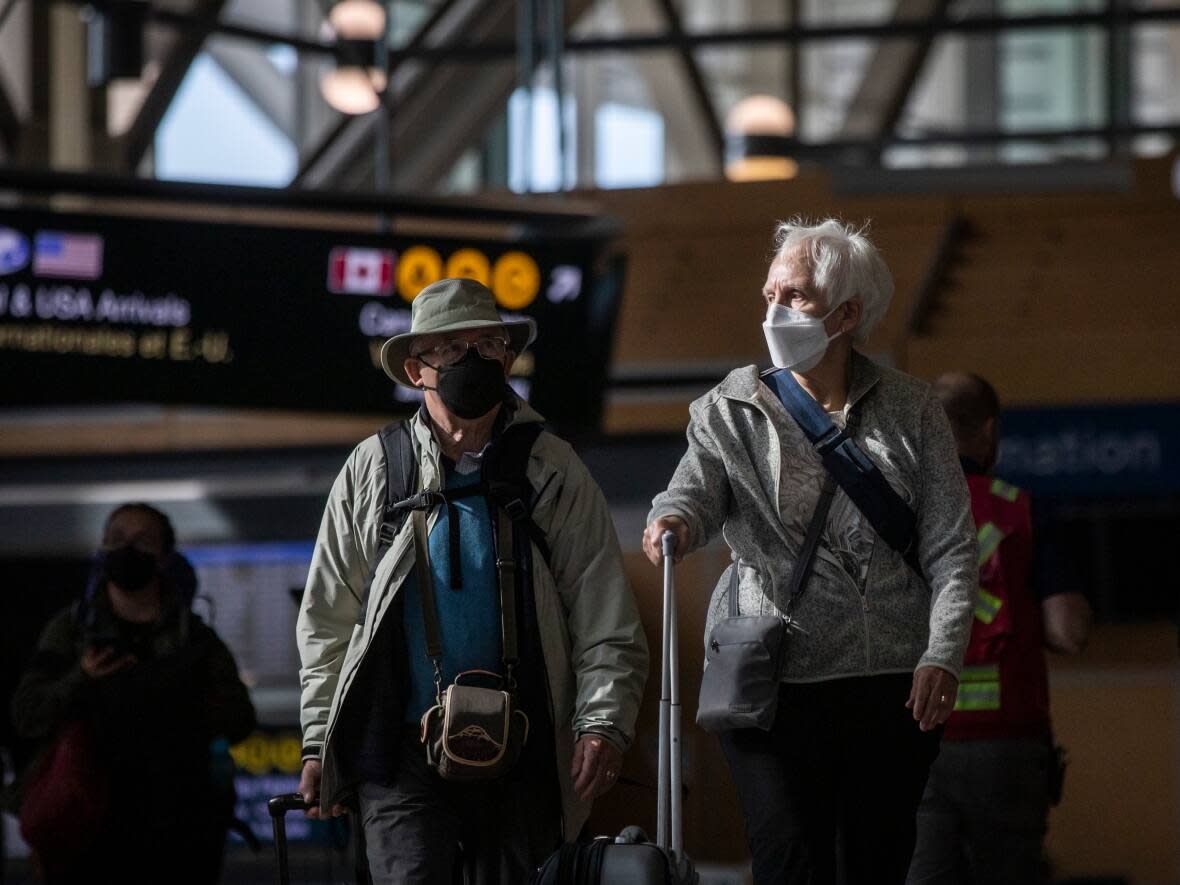COVID-19 hospitalizations in B.C. begin to rise as province braces for early flu season

COVID-19 hospitalizations in B.C. are up this week, bucking a general downward trend that started in late July.
The B.C. Centre for Disease Control reported 367 people in hospital with the virus Thursday, an increase of 20 per cent from last week's numbers when there were 305 people in hospital. Thirty people are in critical care.
Provincial health authorities reported 16 new deaths linked to COVID-19, bringing the total number of COVID-related deaths since the beginning of the pandemic to 4,283.
The government says the weekly numbers it shares are preliminary and are often changed retroactively due to delays in the count and a new method the province uses to measure weekly cases, hospitalizations and deaths.
Deaths are now calculated based on whether they occurred within 30 days of a positive COVID-19 test, whether or not the coronavirus has been confirmed as the underlying cause. The centre says it is evaluating the cause of each person's death retroactively to better understand "true COVID-19 mortality.''
Last week, the province reported 22 deaths between Sept. 11 and Sept 17 but has since revised that number upwards to 31.
B.C. also reported 635 new COVID-19 cases from Sept. 11 to 17, an increase of two cases from the previous week's data.
The province says the count likely underestimates actual case numbers as most people are testing themselves, and there are fewer lab-reported tests.
The B.C. Centre for Disease Control says SARS-CoV-2 viral loads measured in wastewater at five Metro Vancouver treatment plants are down overall.
Over the past 10 weeks, levels at the Annacis Island facility covering Fraser North and South dropped by 60 per cent, and viral loads at the Iona Island treatment plant decreased by 57 per cent.
SARS-CoV-2 levels at the northwest Langley facility were up by nine per cent over the past week; viral loads at the Lulu Island plant covering Richmond have been unchanged over the last five weeks.
The BCCDC continues to exclude data from the Lion's Gate plant in Vancouver, as numbers have been more variable than expected, and officials are still trying to determine what's behind that.
Officials bracing for early flu season
On Thursday, Provincial Health Officer Dr. Bonnie Henry and Health Minister Adrian Dix said B.C. is preparing for a simultaneous increase in COVID-19 and flu cases in the coming months.
Henry said based on what Australia and New Zealand experienced during winter in the southern hemisphere, B.C. could see influenza start to spike in November and December — rather than its usual peak in January.
"We've had very little to almost no influenza for the last few years," said Henry. "That means there's a cohort … of young people who have never been exposed."
Henry promised free flu vaccines will soon be available for those at high risk, with distribution to the general population for those six months and older beginning Oct. 11, after the Thanksgiving long weekend.
Dix said B.C. has already started planning for potential staff and bed shortages in the health-care system, including moving hospital patients into community care and increasing the speed of home care placement.
The province's projections show an additional 700 COVID-19 patients and up to 1,200 additional influenza patients could require treatment in hospital over the course of the fall and winter seasons.
"While actual volumes are hard to predict, we have to prepare for all scenarios, including the most difficult," Dix said.
Health officials are strongly recommending people who are eligible get both a fall booster and flu shot to protect themselves and the health-care system.
A booster campaign offering a new COVID-19 bivalent vaccine dose launched in early September.

 Yahoo Movies
Yahoo Movies 
